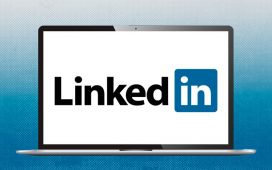Wemimo Abbey speaks during the 2023 Forbes 30 Under 30 Summit at Cleveland Public Auditorium.
Children of immigrants have a large presence in corporate America. The American Immigration Council report “New American Fortune 500 in 2022: The Largest American Companies and Their Immigrant Roots” found that 43.8% of Fortune 500 companies were started by first generation Americans. But it can be extremely difficult to thrive in corporate America when you have to develop your network entirely yourself. Despite overcoming adversity, first generation professionals attribute their success to perseverance.
Wemimo Abbey co-founded Esusu alongside Samir Goel in 2018. Although Abbey was raised in a low-income area without access to clean water, he refused to give up on his dreams. “There are three things that really matter to me. Number one’s perseverance. Trying as much as possible not to give up. Perseverance is key,” he told me. “Create something new that has never been created before.”
Three children of immigrants who have excelled in their careers spoke with me about what it takes for first-generation professionals to break into corporate America.
Find An Inclusive Workplace
Feeling welcome and accepted is important for anyone in the workplace. But when there are cultural barriers between colleagues it can be tricky. According to Priyanka Kompella, a former technical project manager at Disney Imagineering and co-founder of Zero Proofed, it’s important for first-generation people to work somewhere committed to diversity, equity, and inclusion. “Working at an inclusive company helps someone that’s first-gen because there is an extra awareness of the fact that we need to elevate people that may not have had the chance to step in the door,” she said.
As someone who is first-generation Indian-American, Kompella values working in spaces that go above and beyond to be inclusive. “It’s really important to be able to set foot in inclusive workplaces because the team members and managers are trained on why inclusion supports growth of the company.”
And Eric Abramian, a provisionally licensed associate at Knapp, Petersen, and Clarke, strongly agrees. “When you grow up first-generation you have this double-consciousness,” he said. Outside of being a lawyer, Abramian is an author and published his first book Pierre The Umbrella on Amazon in December 2021. He stressed that it’s important for first-generation people to work at inclusive companies because they have multiple facets of their identity. “You compartmentalize different parts of your life. This part of me is Armenian. This part of me is American. This part of me is Persian. You mold different parts of you to each community and find a balance,” Abramian said. “I think that makes you a whole person and where you work really reflects that.”
Share Your Culture With Your Team
Exposing your coworkers to your culture is incredibly important. As a Black woman, I understand how anxiety provoking it can be to share parts of your culture in some corporate settings. But bringing authentic food to the annual company holiday party or showing a colleague music from another country can go a long way in terms of inclusion in the workplace. If the company where you work has DEI initiatives, encourage them to consider recruiting outside of the United States. Before that, start with small gestures to normalize talking about other cultures.
For example, employees and managers at Esusu, a company that leverages data to bridge the racial wealth gap, believe in sharing elements of different cultures to help the company thrive. “We share our cultural vision, mission, values, and operating principles every time we bring a team together,” he told me. “That’s why we exist, that’s why we do what we do.” But the most important part of breaking into corporate America as someone who is first-generation is to build meaningful relationships.
Build Meaningful Relationships
All three first-generation professionals I spoke with stressed the importance of building relationships. Abramian said that includes finding a mentor. He believes it’s important to find more than one mentor to learn as much as possible. “People have stories to share. There’s so much that you can learn from everyone around you. It’s also important to have more than one mentor because one person is not going to know everything,” he told me. “Personality goes so much further than where you went to school. It really doesn’t matter if you don’t have the personality to maintain those connections. Be a good person and make people understand the things you care about and why.”
Abbey also talked about the power of networking. He suggests that first-generation people form relationships at work, through professional organizations, and in school. “Seek meaningful relationships. If you’re in school, build relationships with ten people in your ecosystem. Leverage the power of warm introductions. If you build the right relationships, they’ll be your village,” he said.












